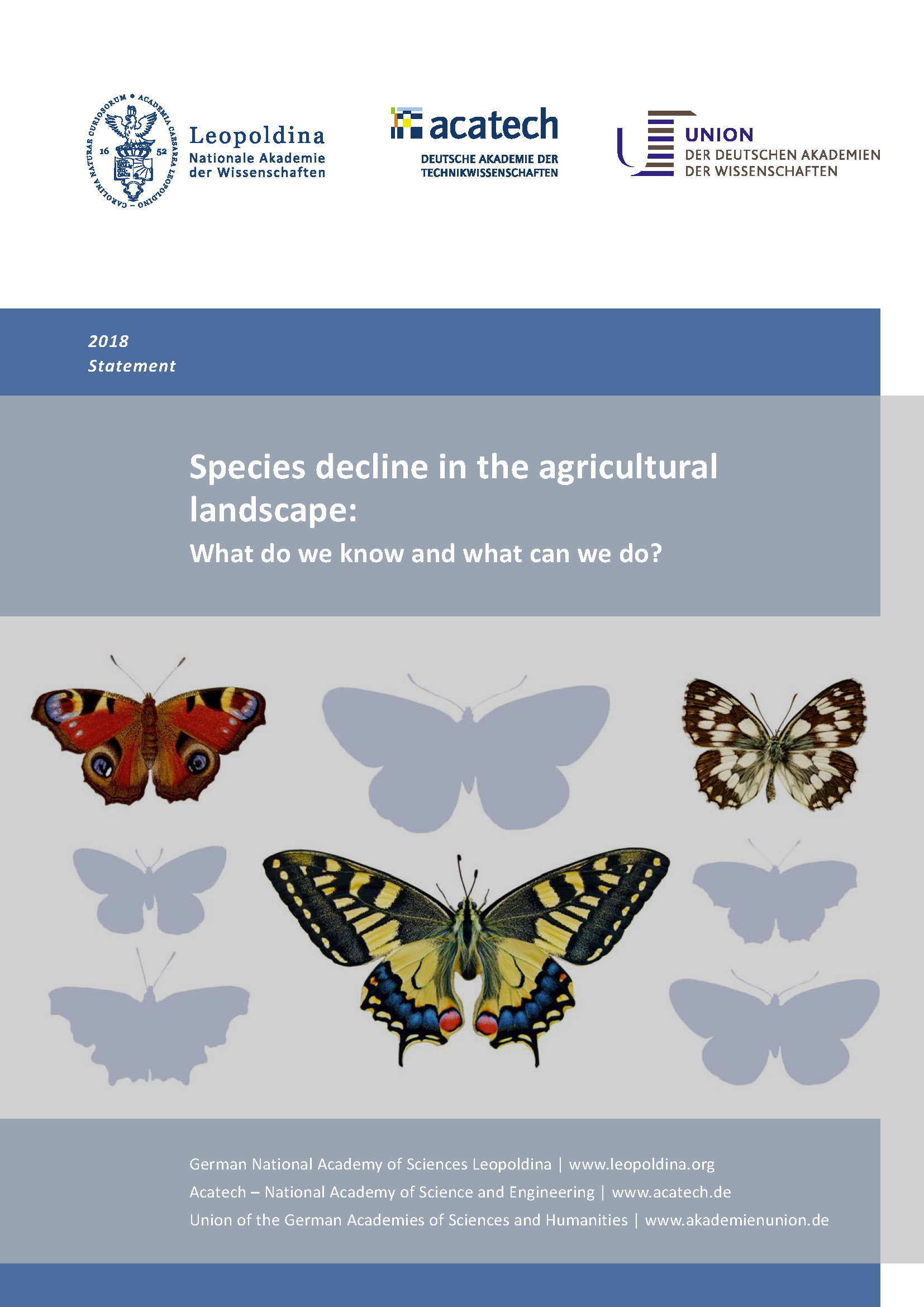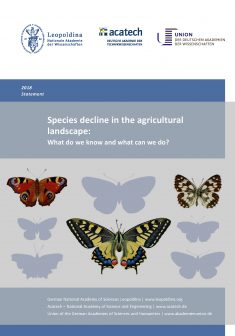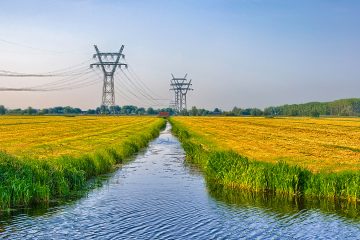Academies urge immediate action to protect biodiversity

Munich, 24 October 2018
Biodiversity in Germany has undergone a sharp decline over the last 25 years. In view of this fact, the “Biodiversity in the Agricultural Landscape” working group of the German National Academy of Sciences Leopoldina, the Union of the German Academies of Sciences and Humanities, and acatech – National Academy of Science and Engineering recommends that the upcoming reform of the Common Agricultural Policy should be used to secure funding for measures to protect biodiversity. In addition, more should be done to encourage districts and municipalities to promote biodiversity at a local level. The retail industry can also help, for example by labelling biodiversity-friendly products. These recommendations form part of the short position paper “Artenrückgang in der Agrarlandschaft: Was wissen wir und was können wir tun?” (Biodiversity Loss in the Agricultural Landscape: what do we know and what can we do?) that will be presented and discussed this evening at an event in Berlin.
Biodiversity loss has several causes, including the increase in intensively managed farmland, the widespread preventive use of pesticides, overfertilisation and the declining structural diversity of the landscape. Unlike other European countries, Germany lacks a single, official, nationwide biodiversity monitoring system. As a result, our picture of the current state of biodiversity in Germany is based on data from several different sources that has been collected using different standards and methodologies. This has led to disputes concerning the extent and causes of biodiversity loss. Nevertheless, the short position paper concludes that there is overwhelming evidence of a sharp decline in biodiversity in Germany during the last 25 years, even in designated protected areas. The authors recommend the establishment of a standardised, nationwide biodiversity monitoring system in order to improve the quality of the available data.
Policymakers, researchers and practitioners will discuss the short position paper’s initial recommendations at today’s event. The results will be fed into the ongoing work of the academies’ working group, which is preparing a longer position paper on the state of the agroecosystem that will contain recommendations on how agricultural landscapes can sustain high levels of biodiversity
The academies’ working group on “Biodiversity in the Agricultural Landscape” is co-chaired by Prof. Dr. Katrin Böhning-Gaese, member of the Direktorium of the Senckenberg Gesellschaft für Naturforschung, Prof. Dr. Alexandra-Maria Klein, Professor of Nature Conservation and Landscape Ecology at the University of Freiburg, and Prof. Dr. Wolfgang Wägele, Director of the Zoological Research Museum Alexander Koenig in Bonn. All three of the working group’s co-chairs will take part in the discussion at the event.



